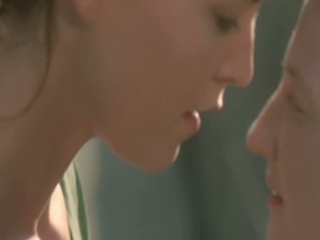There are some films that are so sensual that you can touch
them.
Please don’t misunderstand
me. For so many people in our
pornography culture, “sensual” means sexual or nakedness. But the meaning of “sensual” is “of the
senses,” and it has the deeper meaning of stirring emotion, especially longing
for an ethereal experience that is accomplished through the senses.
Movies are a sensual medium, in general. We see and hear and (if we watch with a
fantastic sound system) feel the movie in the air. In the best films, we experience new things,
live the lives of others whom we had never met before the beginning of the
film. We see and hear through them, and
so obtain a sense of their thought.
But a few films are so sensual, that I can almost use senses
that aren’t actually available in a common film. I can feel the cloth, taste the prawn, caress
the face, smell the forest, move my fingertips over the roughness of the bark
of the tree. But more importantly, I can
capture the very essence of a character’s emotions in my soul.
I would put I Am Love in that category of film. It is a short list, frankly: In the Mood for Love, about the unfulfilled
longing for another. The Double Life of Veronique, about the ethereal
versus the corporal life. The New World,
about choosing one’s love or the one who loves you. Babette’s Feast, about an aesthetic community
that experiences the joy of earth. There are, perhaps, a few others. Three Colors: Blue, The Tree of Life.
But like I Am Love, they are lush, focusing on close
cinematography, drawing on nature and food in a way that stirs both the senses
and the soul. These are films that
expand our experience of reality, even as the finest sensual experiences do—that
communicate not only the flesh, but the spirit behind the flesh.
5/5
Meditation on the Film: What is love?
Love has many faces.
Somehow we know, at its core, it is singular, but it is displayed as
many fractured, contradictory personalities.
Love is about the benefit of the other, but also desire for the self. Love is adoration, but also a mirror
displaying the harsh reality. Love is
granting freedom and stirring deep violation.
Love is in the touch, the taste, the sight, the sigh, but love is also
the longing, the mourning, the restlessness, the isolation. Wrap all this together and we have still
only stirred the bare surface of the depths of love. Love is life, and is as complex as life.
Love in the flesh is a glorious thing. Love is longing, but not knowing for
what. It is the glance that opens one’s
eyes, widens the pupils and the object of love is then written in one’s
soul. We are created for this love, for
this awakening and rebirth of our very selves, for this unification with the
other so the one who we used to be is but a memory, a wisp of the past. Once we have become a new creation, we
build. We create foundations, give birth,
form partnerships, instill values, restore the ancient that has never been seen
on earth before. From love are
traditions formed, legacies initiated, knowledge discovered and cities
built.

Creation is not love’s only legacy, however. All that is built can also be forsaken,
rejected, destroyed. Love is a god that
requires sacrifice. Upon the altar, at
one time or another, we must place our marriage, our work, our children, our livelihood,
our passions, our hopes, our very souls and the souls of those whom we most
deeply care for. Love is filled with
bitter tears, deep resentment and furious anger. It is the passion that demands us and tears
lives into shreds. Love gives and love
shreds, blessed be the name of love.
Yet there is another love.
A love that is not strictly human love, for human love must protect
itself and its creation within a bubble of security of its own making. There is a spiritual love, which calls to the
humans, which can be glimpsed, and then it shyly withdraws. It is
the love that always gives, always forgives, always provides, always sustains,
always restores, always gives life. Love
that embraces the rejected, heals the broken, rebuilds the destroyed and
welcomes the outcast. Paradoxically,
this love requires nothing from the other, yet calls all to sacrifice all for
the other. And the greatest desire of
this love is a people that surrenders all desires for the sake of the need. This love is the ultimate gift without
sacrifice and the ultimate sacrifice that demands all.
And this is the love that will change the world.

















